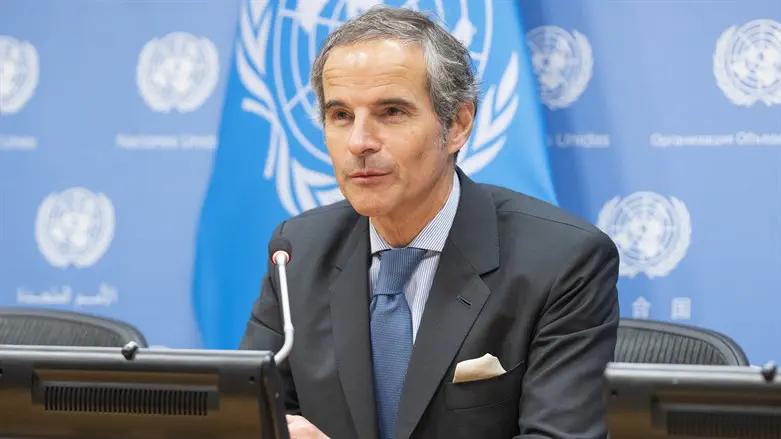
The head of the International Atomic Energy Agency (IAEA) will meet with Iran's President Ebrahim Raisi in Tehran on Saturday to try to "relaunch the dialogue" on the country's atomic work, a diplomatic source said Wednesday, according to AFP.
The visit by Rafael Grossi comes after the agency announced that its inspectors in Iran had found uranium particles enriched to nearly bomb grade, or 90 percent, at the Fordow plant.
Tehran has denied the claims, saying it had not made any attempt to enrich uranium beyond 60 percent.
Grossi is aiming to "reset the relationship at the highest level" by directly speaking to Raisi, the source said.
"He had made clear over recent weeks that he was only prepared to go to Teheran if he had an invitation to speak with the president," the source added.
Contacted by AFP, the IAEA declined to comment.
Wednesday’s report comes two days after Iran said that Grossi would visit Tehran "in the coming days following the uranium discovery.
The discovery of the uranium comes as talks between Iran and world powers on reviving the 2015 Iran nuclear deal remain stalled and have been since September.
Despite the discovery of the uranium, CIA Director William Burns told CBS over the weekend that the US believes Iran hasn't yet decided to resume its nuclear weapons program.
“To the best of our knowledge, we don’t believe that the Supreme Leader in Iran has yet made a decision to resume the weaponization program that we judged that they suspended, or stopped, at the end of 2003,” said Burns.
“But the other two legs of the stool, meaning enrichment programs, they’ve obviously advanced very far,” he continued. “They’ve advanced very far to the point that it would only be a matter of weeks before they could enrich to 90% if they chose to cross that line, and also in terms of their missile systems, their ability to deliver a nuclear weapon once they develop it, has also been advancing as well.”
“We don’t see evidence that they’ve made a decision to resume that weaponization program, but the other dimensions of this challenge, I think, are growing at a worrisome pace too,” added Burns.
On Tuesday, US Under Secretary of Defense for Policy Colin Kahl told lawmakers that Iran could make enough fissile for one nuclear bomb in "about 12 days,", down from the estimated one year it would have taken while the 2015 Iran nuclear deal was in effect.


